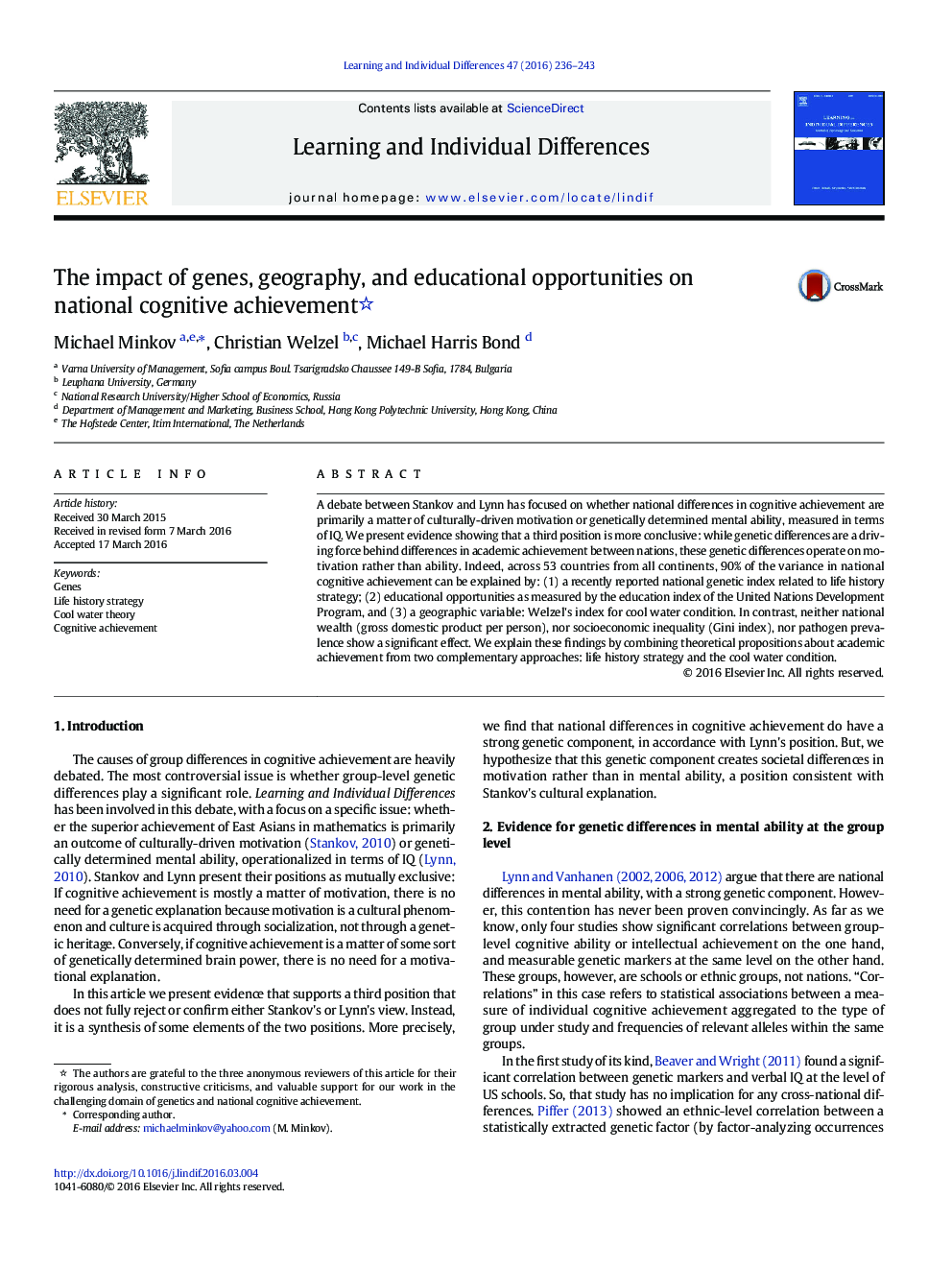| کد مقاله | کد نشریه | سال انتشار | مقاله انگلیسی | نسخه تمام متن |
|---|---|---|---|---|
| 364606 | 621076 | 2016 | 8 صفحه PDF | دانلود رایگان |
• National cognitive achievement (IQ) is explained by distal and proximate factors.
• The distal factors are two previously reported variables: a genetic index and a geographic index.
• The proximate factor is educational opportunities.
• The effect of the genetic factor is explained in terms of life-history strategy.
• The effect of the geographic factor is explained in terms of cool water condition theory.
A debate between Stankov and Lynn has focused on whether national differences in cognitive achievement are primarily a matter of culturally-driven motivation or genetically determined mental ability, measured in terms of IQ. We present evidence showing that a third position is more conclusive: while genetic differences are a driving force behind differences in academic achievement between nations, these genetic differences operate on motivation rather than ability. Indeed, across 53 countries from all continents, 90% of the variance in national cognitive achievement can be explained by: (1) a recently reported national genetic index related to life history strategy; (2) educational opportunities as measured by the education index of the United Nations Development Program, and (3) a geographic variable: Welzel's index for cool water condition. In contrast, neither national wealth (gross domestic product per person), nor socioeconomic inequality (Gini index), nor pathogen prevalence show a significant effect. We explain these findings by combining theoretical propositions about academic achievement from two complementary approaches: life history strategy and the cool water condition.
Journal: Learning and Individual Differences - Volume 47, April 2016, Pages 236–243
